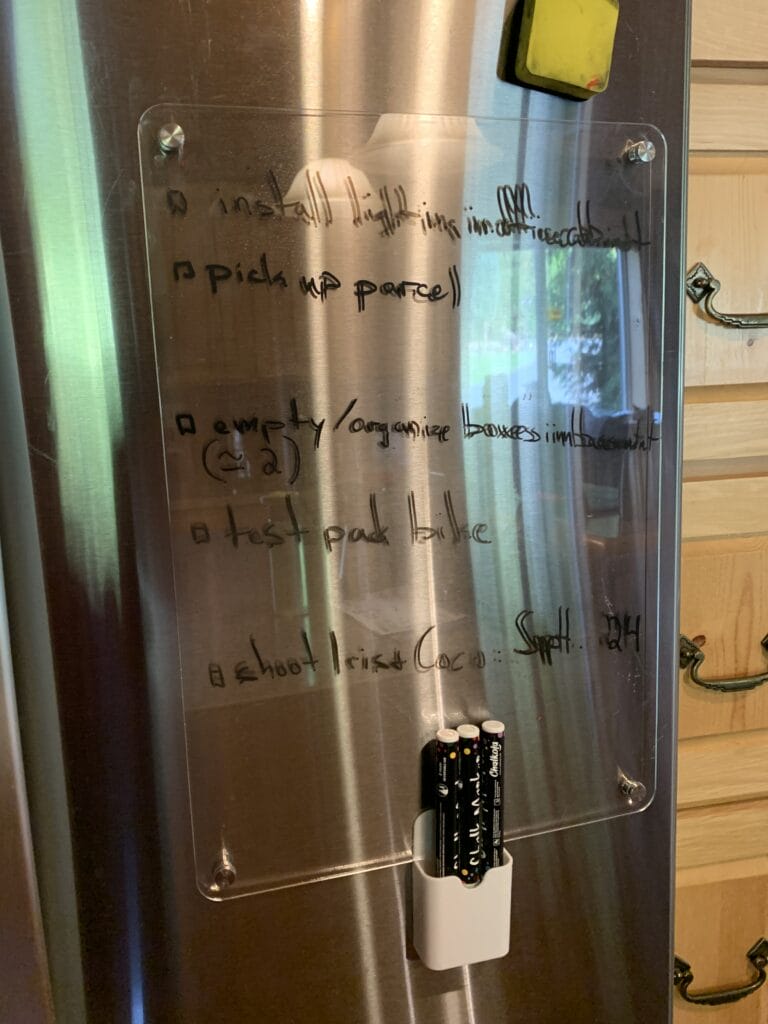I spent much of my working life with a perpetual ‘to do’ list. Things were added, things were removed, but the list persisted. This was a supplement to an even bigger ‘to do’ list in the form of a project plan, but the concept was always the same. No matter how carefully I planned, new tasks always found their way onto these lists making any concept of ‘done’ rather elusive.
I’m retired now, and yet the To Do list lives on. I’ve had a household list of some kind for a decade or so, but now in my ‘golden years’ (where’s the gold?) I find the list is filling and emptying far more frequently. Yet some tasks are evergreen and never seem to make their way off the list…
Perpetual tasks

There are two tasks that were added to the list on our fridge several months ago:
- Install lighting in office cabinet
- Empty/organize boxes in the basement
These items look innocuous, but they each hold dark secrets that prevent their completion. “Install lighting in office cabinet” is the most mysterious, and unpacking what it means gives a sense of why these two items remain on my list. It actually means:
- thoroughly clean office space: wash and polish floors
- clean and polish wood cabinet
- design lighting solution for display cabinet, drill holes, route wiring
- unpack boxes of items to go on display
- organize items in display cabinet
- organize remaining boxes to fit in the closet
- re-organize desk and associated items to improve office space layout now that I’m not working
“Empty/organize boxes in the basement” is similarly the surface layer of an onion of sub-tasks. So these two items remain perpetually on my list, briefly joined by other simpler tasks that arrive, are completed, and get erased. “One day” becomes further and further in the future.
False accomplishment
My household To Do list has a regular flow of satisfyingly completed items. But the list hides the dark secret of my procrastination: certain tasks like the two I’ve mentioned above become ‘perpetual’ because they hide too much behind their one-sentence facades.
I know how to ‘fix’ this: decomposing the ‘perpetual’ tasks into smaller steps like I did above is the trick. But none of those intermediate steps feel like ‘outcomes’, and so I don’t address them as I should.
This isn’t a complaint, and I’m not looking for a ‘fix’. It is the reality of my life. And I will (eventually) clear those perpetual items off my list. But for now they remain: reminders of things to do that aren’t getting done.
